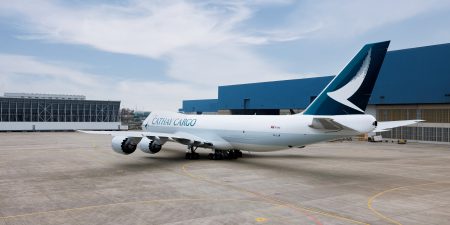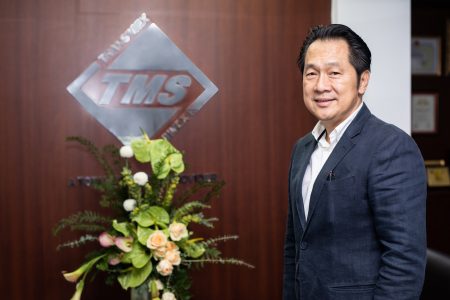Samsung has several plants in Vietnam making phones, while another facility makes high-end TVs. A Transimex facility is on one campus to get these top-end consumer goods straight to retailers and customers via air freight. A lot of high-end garment manufacturers are based in Vietnam, and the latest figures show that around 500,000 people are employed by one of the top sports apparel companies in the US.
But as with everywhere else in the world, Vietnam has another booming sector – e-commerce. ‘It went up 35 per cent in 2018,’ says Hiep. ‘Many logistics companies are investigating how they can get involved in final-mile delivery, and the government is creating new rules and regulations for e-commerce.’
Also growing quickly is Vietnam’s air traffic, with more foreign carriers, passenger and freight touching down. In addition, the country’s aviation market is expanding with ambitious new entrants such as Bamboo joining existing full-service and low-cost carriers. For Hiep, this glut in capacity could bring about a two-tier cargo fleet in a similar vein.
‘At the moment, the margins on e-commerce are very thin,’ he says. ‘We have to consider our offer like a budget against a premium carrier. I can see the market splitting as it grows, where you pay more for a more specialist premium cargo carrier, or less for a budget carrier.’
As for the Hong Kong-based premium carrier, Hiep is pleased with Cathay Pacific. ‘It’s a very reliable air cargo carrier, and that’s our first priority to our customers,” he says. ‘It’s growing too with Air Hongkong and HK Express, so that gives us more variety and choice. The service is good, which is very important, and we hear that from our clients.’
But in a rapidly developing market, no one should get too comfortable. ‘There are big competitors coming into Vietnam,’ Hiep says.





